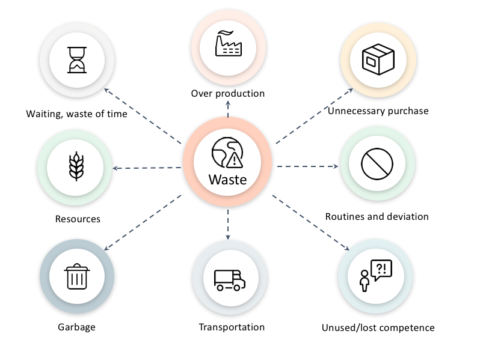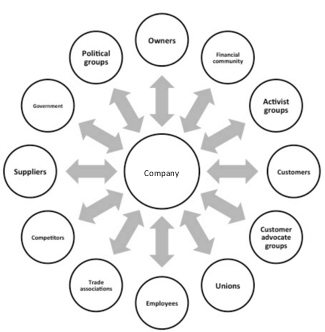Romanian businesses are operating on "very thin ice."
In 2023, 10 Wingate events brought together over 450 representatives of the local business ecosystem. The 10 cities where they took place provided an opportunity to disseminate the project's values, centered around the need for continuous education and a proactive approach to networking as a solution for sustainable scaling. It was also an occasion to deeply analyze the developments and challenges of the entrepreneurial development in 2023.
The outlook for 2023 was viewed with concern by more than half of the managers attending the Wingate events, given the inflation, decreased investment appetite, and financial blockages. Most believe that businesses are operating on "very thin ice."

The risk of insolvency is increasing as consumption, which is the main driver of the economy, continues to be affected by decreased purchasing power and limited access to credit, according to the study respondents.
Inflation has climbed to the second place among concerns for Romanian entrepreneurs. In addition to declining businesses and inflation, they are also worried about increasing financial blockages and rising financing costs, including expensive and limited access to credit.
"Inflation has had a significant impact on the economy, and its second-round effects will be visible until the end of 2023, when business dynamics could enter a negative trend, especially due to investors' confidence in the economy," said Cristina Chiriac, President of the National Association of Entrepreneurs, Founder of Flori de Ie.
"After two years of the pandemic and a year of strong inflation, 2023 is the year when we will face all the accumulated economic imbalances from this period. Business restructuring is a priority, and optimizing production and sales flows in line with demand evolution and new digital tools will be the general characteristic of an economy dealing with financial frost," added Cristina Chiriac.
Restructuring businesses are at the center of attention for 2023. Investors need to focus on reorganizing operations following the decline in consumption and the intensification of disintermediation, after a 2022 where the business environment was primarily focused on stimulating consumption following two years of the pandemic.
"A state of complete uncertainty" is the sad conclusion after managers hoped for a consumption recovery post-pandemic but were disappointed by the effects of inflation, which affected purchasing power and disrupted economic chains, especially due to increased production costs, particularly in the energy sector (electricity, gas, fuels), emphasized Nicoleta Munteanu, Vice President of the National Confederation for Women Entrepreneurship, Founder of Kids in Business, and a constant presence at Wingate events.
The results of the Wingate meetings show that, among the priorities for 2023, business restructuring is followed by securing business lines, mentioned by the majority of female entrepreneurs.
Only a quarter of the managers present at the meetings are relying on new investments in 2023, with most waiting to see the evolution of the local and international macroeconomic framework, given the ongoing conflict in Ukraine.
At the same time, the dynamics of businesses in 2023 will largely depend on the functioning of supplier credit, which represents the primary means of financing businesses in Romania, according to the study.
Investments and accelerated digitalization are key factors for 2023.
Most entrepreneurs believe that Romania's economic growth in 2022 was deceptive, driven mainly by inflation rather than the development of predictable and future-oriented businesses.
According to them, the effects of inflation could provide a positive outlook in the new year, although it is only loosely associated with real economic dynamics.
While last year predicted a strong economic recovery in the first half of 2023, the perception has now shifted towards the end of the second semester when a positive reorientation of the economy could be observed against the backdrop of decreasing inflation.
According to discussions within Wingate regarding the exit from the crisis, the stakes of the Romanian economy are primarily focused on curbing inflation and attracting funds from the National Recovery and Resilience Plan (PNRR) as solutions to keep the economy afloat.
Curbing inflation and emphasizing investments could save an economically uncertain year of 2023. For the financially fragile Romanian economy, the €29.18 billion allocated for PNRR implementation, including grants worth approximately €14.24 billion and loans worth €14.94 billion, could represent a lifeline to save businesses from an increasingly evident technical recession.
"A constant dialogue between the business environment and authorities is necessary. The existence of this dialogue helps the latter stay informed about the challenges faced by the business environment and provides some predictability to it. The stability of fiscal policies and the long-term predictability of the executive's vision on fiscal strategy give the business environment a competitive edge when local companies enter foreign markets," said Mihaela Mitroi, President of CONAF Bucharest and CEO of Global Tax Advice.
In 2023 the Wingate project events took place on February 2nd in Bucharest, February 3rd in Buzau, February 7th in Oradea, February 23rd in Sibiu, April 5th in Bucharest, May 3rd in Ploiesti, May 9th in Buzau, June 9th in Brasov, June 14th in Bucharest, and June 20th in Giurgiu, with over 450 participants representing the Romanian entrepreneurial environment.
Why sustainability is important for your business?
By Lotte Frost, Wingate Norway
Everybody is talking about sustainability and business as usual doesn’t exist anymore. We need to change how we run our companies in order to protect both the planet and the people, but also in order to generate future profit. There are many reasons why your company should focus on sustainability, but I would like to emphasise three – saving money, access to more projects and building strong relationships with your stakeholders.
You save money
The easiest thing we can start doing immediately is stop wasting. And it’s not just about resources, it also about time, people, processes and all activities your business is engaged in. In order to analyse what and how the company waste today, it’s important to analyse the whole value chain and your activities.

Source: Ecofric
The fact is that there is less access to all resources and they are more expensive. Both the corona pandemic and the war in Ukraine have contributed to escalating this development even faster. In addition to this we see that governments are starting to use fees and regulations on products and services that are not sustainable, so companies are forced to make more sustainable choices.
For some this can be an important competitive advantage and if you buy only what you need, use it up and recycle, it’s also a way of saving money. It’s all about moving from linear to circular economy and the fact that you reuse, repair, rental, recycle when it’s possible. It’s quality instead of quantity and it will save you time and money.
You get in position for more projects
The demands of running a sustainable company are increasing and reporting on sustainability will be mandatory in the future. Due to the EU-taxonomy the large companies are already being monitored, and the surveillance system will also affect smaller companies as suppliers and cooperating partners to the larger companies.
So, if your business can document that you focus on running a sustainable business, it will be easier for the larger companies to work with you. And if you are first or early mover in your market, it can be a real competitive advantage.
It’s important for your stakeholders
Your busi ness has an impact on many stakeholders, not just your costumers. There are a lot of groups affected by your business. It can be politicians, employees, owners, shareholders, the local community and so forth. They can be internal and external and you need to consider the number of people in the different stakeholder groups and the degree of importance.
ness has an impact on many stakeholders, not just your costumers. There are a lot of groups affected by your business. It can be politicians, employees, owners, shareholders, the local community and so forth. They can be internal and external and you need to consider the number of people in the different stakeholder groups and the degree of importance.
You need to understand all your stakeholders and you need to understand their problems, their issues and adjust your solution to fit their needs. When we meet their needs, we create a win win situation. The company become the problem solver, and will be considered a helping hand, a friend. In the end, our stakeholders can become attached to us and they will be future ambassadors. So, keeping the stakeholders happy is good for business. The importance of different stakeholders will vary from time to time, and it’s important that we recognize this and continuously evaluate and adjust our actions.
To sum it all up, sustainability is about balance. And in order to create a thriving and healthy business for the future you need to balance the three P’s – people, planet and profit. You need to commit and actively contribute to the essence of sustainability; meeting our own needs without compromising with the ability of future generations to meet their needs. It’s about causing little or no damage to the environment and creating a long-lasting business. And be transparent and communicate your results. It will save you money in the long run, you will be included in more projects and your stakeholders will applaud you. Good luck!

